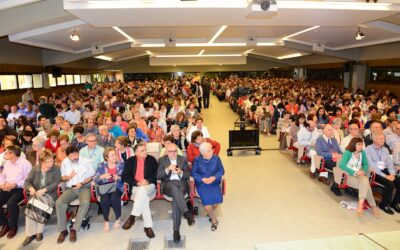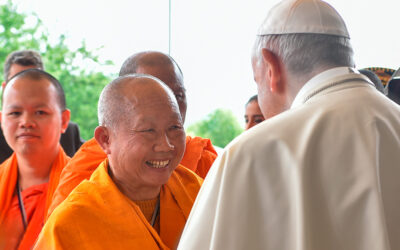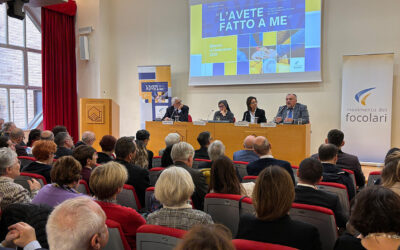“To live” the truth? We “learn” the truth; we “speak” the truth…. But for Jesus, truth is “lived out.” Jesus always takes us by surprise.
Even Nicodemus, a Rabbi and a member of the Sanhedrin, was surprised. He had gone to ask Jesus how one could enter into the Kingdom of God. Jesus replied that he would have to be reborn, that is, he would have to accept the new life that Jesus had come to bring on earth and to allow himself to be inwardly transformed by it to the point of becoming a son of God and thus enter into his very world. Salvation, rather than being a human accomplishment, is a gift from on High.
Nicodemus, who came to see Jesus at night, in the darkness, went away full of light.
«Whoever lives the truth comes to the light.»
This Word of Life is an invitation to act in conformity with the truth, in harmony with the Gospel. It asks us to be people who are “doers of the word and not hearers only” (Jas 1:22; see 1 Jn 3:18). One of the Fathers of the Church, Hilary, Bishop of Poitiers, said that “there is nothing about the Word of God that cannot be lived out: everything that is said in it needs to be put into practice. The Words of God are decrees” (PL 9,295).
Our faith and our moral behavior are closely linked together.
In Jesus, as clearly appears in his intense discourse with Nicodemus, the light, the life and the love he lived out all coincide. So too they should coincide in those who accept him and become, in him, sons of God. Another Father of the Church, Clement of Alexandria, wrote: “Those who obey the Lord and because of him live their lives according to Scripture will then be fully transformed in the image of the Teacher: he or she will make it to live like God on earth” (PG 9,539C).
The same coherence is asked of those who do not profess a specific religious creed. The deep convictions that conscience dictates require that they be translated into deeds.
«Whoever lives the truth comes to the light.»
The result of living out the truth is to come to the light, “to accept Christ.” Jesus promised us: “Whoever loves me… I will reveal myself to him” (Jn 14:21). He is the “true light” (Jn 1:9).
But the result of living out the truth is also the witness that radiates beyond ourselves and into that area of society we live and work in. Jesus had already said this when he invited us to make our light “shine before others, that they may see your good deeds and glorify your heavenly Father” (Mt 5:16).
A consistent life is more eloquent than any speech. Children ask that their parents practice what they preach: they want them to be united, to be intent on maintaining and consolidating the harmony in their family. Citizens expect consistency in the political leaders they have elected: that they be faithful to their campaign promises, that they be effectively concerned about the common good, and that they be honest in their administration of financial resources. Students ask their teachers to be consistent in their obligations to teach and to educate. Honesty, transparency, competence are all elements that are asked of people in business, in professions, and in every kind of work.
Society is built up and improved also through the witness of consistency between the ideals we profess and the practical choices we make each day.
«Whoever lives the truth comes to the light.»
This is the experience of people like Nelson Mandela, who remained steadfast in his quest for equality, enduring many difficult years in prison, only to emerge victorious as his nation’s leader, and of people like Martin Luther King, Jr., who paid with his very life for living out what he believed.
This is also the experience of many men and women who remain unknown but are no less authentic and heroic in the choices they make. For instance, this was the case of a small business owner who was asked to accept an illegal bid in exchange for new supplies. He opted to remain faithful to his principles. It was a difficult decision, for he made it with the full awareness that by being honest, he risked losing a large part of his sales. In fact, the merchandise chain that sold his products held back its orders, bringing his business to the brink of bankruptcy. After a few months, however, the merchandise chain was forced to backtrack on its decision because so many shoppers had complained when they no longer found the small business products on the shelves. A consistent way of life was rewarded.
Chiara Lubich




0 Comments